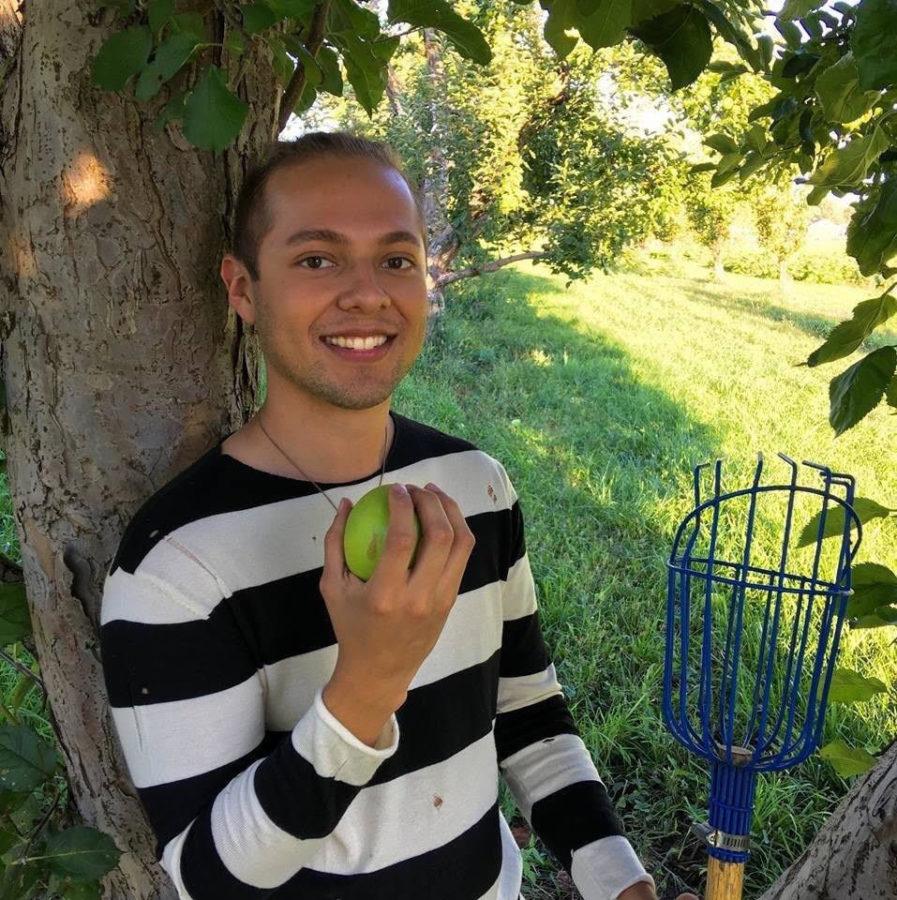Espitia: Finishing first
August 29, 2018
High school seniors across the United States wait for their first wave of letters from prospective universities. With eager parents at their side, college life is imminent. Among these seniors are the first-generation students.
According to the U.S. Department of Education, a first-generation student is defined as a “[student] whose parents have never earned a bachelor’s degree but may have some postsecondary experience.” These students are the first generation in the family to attend, and receive a bachelor degree at a four-year institution.
In fall 2017, Iowa State had 36,321 students enrolled. Among the numbers, at least 20 percent of the student population are first-generation students. But what does it mean to be a first-generation student? How do they go through college differently than traditional students?
I was born to two immigrants of Mexico, both of whom traveled to the United States in search of a better future. Neither of my parents attended college. My mother attended a few classes to better her English and to be a working citizen. My father did not attend any college. Working any job that could provide for my family, my mother always stressed the importance of college.
Eighteen years later, I got accepted at Iowa State. Fast forward to the end of my junior year and college has definitely been one of the hardest experiences I have faced. Entering college was like entering a parallel universe, a culture shock like no other. Feeling like an outsider and not knowing where to turn; carrying a confidence that burns dimly but fights to stay. It often feels like a stumble uphill just to stay afloat.
My story isn’t unique. My experience can be shared with the thousands of students that battle a label silently, tucked away in daily life. These students have faced a similar dilemma before, during and after college.
Katie Seifert, Peace Corps Coverdell Fellow and graduate student at Iowa State, works with students of color, low-income and diverse backgrounds in the Des Moines area. The ISU 4U Program partners with students at Des Moines Public Schools and awards tuition assistance for those who meet requirements. Students that pass fifth grade are eligible for the enrollment process and can apply when enrolling for admission to Iowa State. The program strives to assist students to transition successfully between high school and college.
What happens when these students enter their first year of college?
Seifert says students translate between two different worlds. One may be an environment with supportive peers who understand the stress of college and living on a campus that celebrates adventure. The other may be a home where there is no mutual understanding of the successes and hard-work put in towards a degree; or perhaps a family still needs financial support from the student. Often, there’s a layer of guilt when these students are in the first generation of a family to pursue the dream of a college education.
“They learn to navigate through academic procedures, social procedures and leaving family, a big challenge for first generation students,” Seifert said.
Kenyatta Shamburger, assistant dean of students at Iowa State University, said these students are faced with doubt, questioning their abilities. A shackle wraps around their mentality of breaking the cycle to become among the first in the family to own a degree.
“Coming to college is a huge step. Feelings around, ‘Can I do this? Am I prepared? Will I do well?’” Shamburger said. “Most students have these thoughts, but first-generation students may add to that. ‘If I struggle, who do I go to?’”
A student may receive unlimited support from their family, but that support can create a pressure to succeed. That added element from a community that may not have prior experience in higher education, causes a fear to not let anyone down. Nothing feels worse than feeling like a failure, and in this population, failure isn’t an option.
Shamburger says it takes a little bit longer for first-generation students to adjust. Without the help of parents, the college environment can feel overwhelming. A major barrier can be adjusting to the language used in a university setting. Deadlines, syllabi, award letters and locating resources can feel like walking through a labyrinth.
“We have to challenge ourselves not to assume that everybody comes into university with the same information or knowledge,” Shamburger said. “Is it something I should already know?”
Navigating through these different spaces can be difficult. The Iowa State community provides spaces for first-generation students to be able to relate to each other. According to Seifert, extra-curricular activities prove beneficial. Having other peer support creates a space of understanding, helping them feel less like outsiders on campus.
















